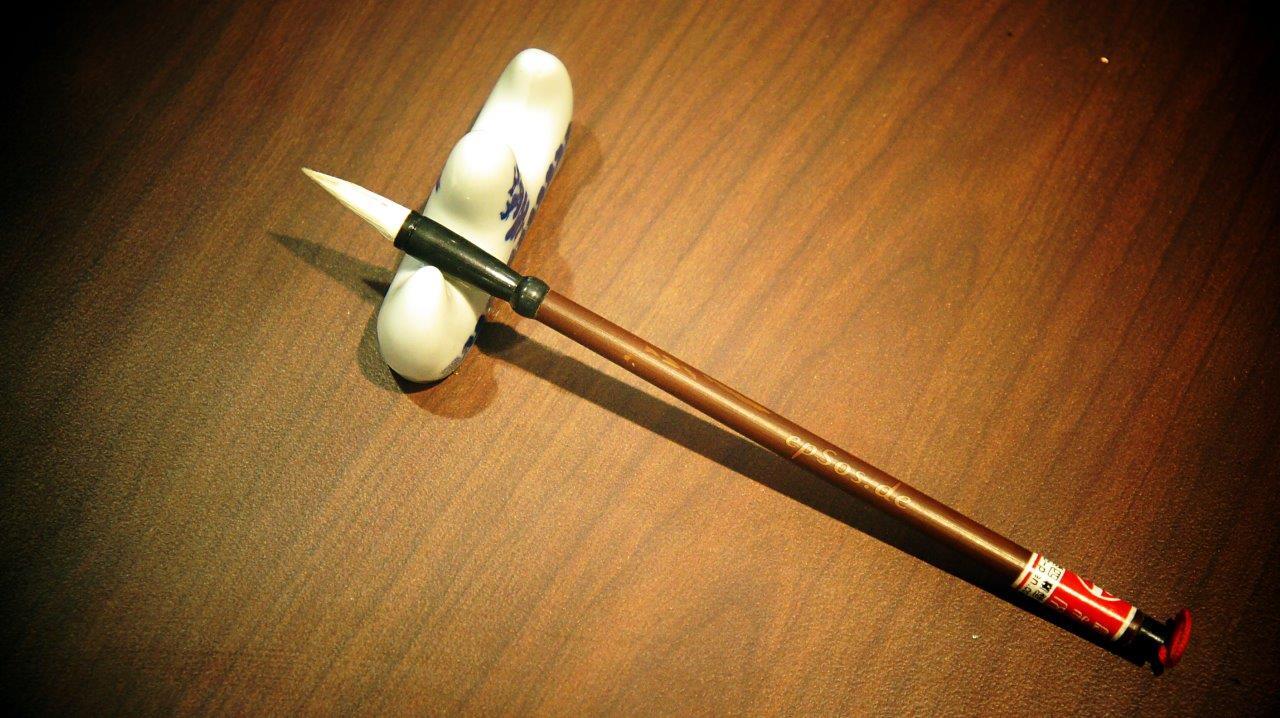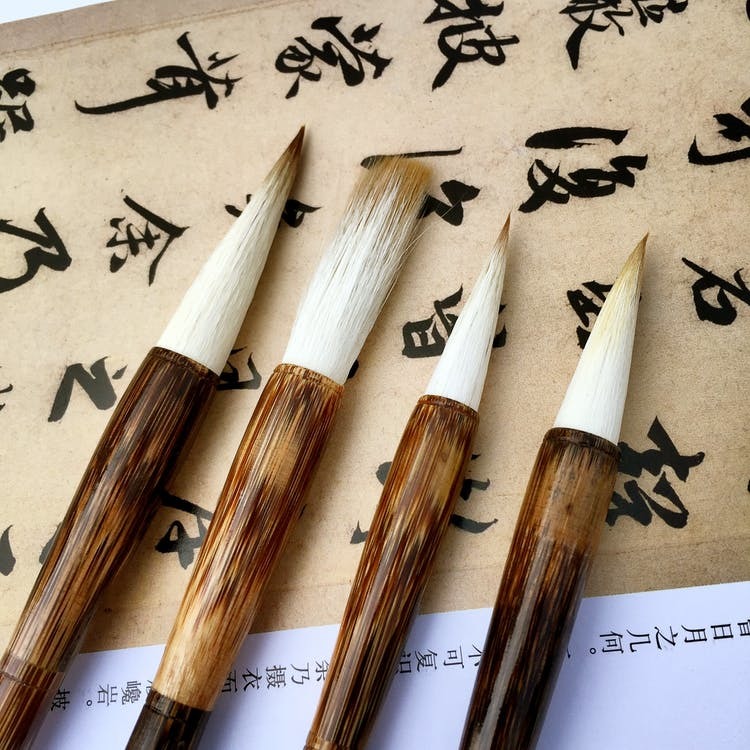The Best Chinese Words to Practice as a Beginner: The Definitive List Part 2

Welcome to part 2 of the Best Chinese Words to Practice as a Beginner: The Definitive List. Whilst previously we covered initial sounds, now we're going to make a start on finals. If you missed The Definitive List: Part 1, be sure to take a look and add those words to your vocubulary
So! Without further ado, let's get started.
Simply click on the numbers next to a word to listen to its pronunciation.

The Best Words for Pronouncing Pinyin Finals
.
a - Like 'ah' in 'ah hah!'
Pretty simple, keep your pronunciation the same as 'ah' in English and you'll be having that eureka moment before you know it!
Example #1: Bàba 爸爸 - father
Example #2: Māmā 妈妈 - mom
Example #3: Dàyé 大爷 - uncle
Example #4: Yālì 压力 - pressure
Example #5: Fāxiàn 发现 - Find
ai - Like 'eye' in 'eye'
Relatively simple due to its similarity with English. Just try pronouncing 'eye', or 'aye' as though you were a pirate (without the gruff tone of voice of course).
Example #1: Àihào 爱好 - hobbies
Example #2: Lái 来 - come
Example #3: Mǎi 买 - buy
Example #4: Táiwān 台湾 - Taiwan
Example #5: Kāi 开 - open
ao - Like 'ou' in 'proud'
A bit different, but not by too much. Try isolating the 'ou' sound in 'proud' or 'sour' and pronouncing that on its own.
Example #1: Kǎoshì 考试 - examination
Example #2: Gāo 高 - high
Example #3: Táo 逃 - escape
Example #4: Lǎoshī 老师 - teacher
Example #5: Nǎodai 脑袋 - Head
an - Like 'an' in 'man'
Just like in English.
Example #1: Ānquán 安全 - safety
Example #2: Sǎn 伞 - umbrella
Example #3: Kàn 看 - Look
Example #4: Gàn 干 - dry
Example #5: Pànwàng 盼望 - hope
ang - Like 'ah' in 'ah hah' and 'ng' in 'sing'
You can make the 'ang' sound in Mandarin by combining the Mandarin Chinese 'a' sound with the same 'ng' sound you'll find in English.
Example #1: Fángzi 房子 - house
Example #2: Gāngcái 刚才 - just now
Example #3: Hángzhōu 杭州 - Hangzhou
Example #4: Láng 狼 - wolf
Example #5: Pàng 胖 - fat
o - Like 'o' in 'bore'
To make the 'o' sound like a pro in Mandarin Chinese, you'll need to make the same shape as though you were saying the 'o' in 'bore'. Your tongue should be slightly curled, but not as much as with 'zh', 'ch', or 'sh'.
Example #1: Wǒ 我 - I
Example #2: Bòfàng 播放 - play
Example #3: Mò 莫 - Mo
ong - Like 'ong' in 'song'
The same as it sounds in English.
Example #1: Dōng 东 - east
Example #2: Gōngxǐ 恭喜 - congratulations
Example #3: Hóng 洪 - flood
Example #4: Kǒngzǐ 孔子 - Confucius
Example #5: Sòng 宋 - Song (dynasty)
ou - Like 'ou' in 'dough'
For a sound present in the word which means mouth, you won't have to open yours too wide to pronounce it properly. Try pronouncing 'ou' in words like 'dough', but make sure you don't pronounce the slight 'gh' sound which comes after.
Example #1: Tǔdòu 土豆 - potato
Example #2: Fǒu 否 - no
Example #3: Hòulái 后来 - later
Example #4: Kǒu 口 - mouth
Example #5: Tóu 头 - head
e - Like 'uh' in 'duh'
'e' can be a tricky one in Chinese finals. It's not at all like the English 'e', which can put off beginners trying to master its pronunciation. It sounds a lot like 'uh'. Imagine having a stomach ache (maybe from hunger) and making that sound. You should have it down.
Example #1: Hē shuǐ 喝水 - drink water
Example #2: Zhèngcè 政策 - policy
Example #3: Dàodé 道德 - moral
Example #4: Gēgē 哥哥 - brother
Example #5: Zhǎozé 沼泽 - swamp
ei - Like 'ei' from 'eight'
'ei' might catch you by surprise, especially considering that all the other 'e' sounds in pinyin sound like 'uh'. 'ei' actually sounds like its English counterpart though. Try pronouncing 'ei' from 'eight'.
Example #1: Bèizi 被子 - quilt
Example #2: Dé 得 - get it
Example #3: Fēi 飞 - fly
Example #4: Gěilì 给力 - awesome
Example #5: Léi 雷 - thunder
en - Like 'un' from 'sun'
Try pronouncing the 'un' sound from English, but this one isn't exactly the same. The sound should originate from the back of your mouth as opposed to in your throat, and your tongue should be slightly curved. It's almost as though it were a cross between the English 'en' and 'un'. It's somewhere in the middle.
Example #1: Běnzi 本子 - book
Example #2: Fēnshǒu 分手 - break up
Example #3: Hěn 很 - very
Example #4: Wǒmen 我们 - we
Example #5: Rén 人 - people
eng - Like 'ung' from 'sung'
Similar to 'en'. Try pronouncing it as though you were making a sound somewhere between the English 'eng' and 'ung'. It is, however, closer to 'eng'.
Example #1: Děng 等 - wait
Example #2: Méng 萌 - cute
Example #3: Yǒnghéng 永恒 – eternal
Example #4: Rēng 扔 - throw
Example #5: Xuéshēng 学生 - student
er - Like 'ar' in 'bar'
'er' sounds similar to 'ar' in English. It's another pirate sound, ya- har!
Example #1: Érzi 儿子 - son
i - Like 'ee' in 'bee'
'i' doesn't have the same short, sharp sound you expect in English, instead, it's a longer sound similar to 'ee'.
Example #1: Bìxū 必须 - have to
Example #2: Lǐjiě 理解 - understanding
Example #3: Nǐ 你 - you
Example #4: Jīdàn 鸡蛋 - egg
Example #5: Sīxiǎng 思想 - thought
ia - Like 'ia' in 'iago'
'ia' sounds pretty much the way you would expect a combination of the Mandarin Chinese 'i' and 'a' sounds together would. Make sure that middle of your tongue starts against the roof of your mouth, and then pushes off as you move to the 'uh' sounding 'a'.
Example #1: Jiǎshè 假设 - hypothesis
iao - Like 'ee' in 'bee' and 'ou' in 'proud'
Combine the Mandarin sounds of 'i' and 'ao' together to create this sound. Put more stress on the 'ao' sound.
Example #1: Jiǎo 脚 – foot
Example #2: Qiǎohé 巧合 - coincidence
Example #3: Tiáozhěng 调整 - adjustment
Example #4: Diàoyú 钓鱼 - fishing
Example #5: Biǎoshì 表示 - said
ie - Like 'ee' in 'bee' and 'eh' in 'meh'
Notice that the 'e' sound in 'ie' is slightly different than 'e' on its own. The pitch should be slightly higher.
After you've mastered this, the trick to pronouncing 'ie' correctly is to make sure that you stress the 'e' part. The 'i' should be relatively short and sweet, taken over by the 'e' sound quickly.
Example #1: Bié 别 - do not
Example #2: Dié 蝶 - butterfly
Example #3: Rèliè 热烈 - warm
Example #4: Jiérì 节日 - festival
Example #5: Xièxiè 谢谢 - thank you
iu - Like 'ee' in 'bee' and 'ow' in 'bow'
Whilst the 'i' sound remains the same, the 'u' sound is a bit different. Pronounce it as though you were trying to pronounce 'ow' in 'bow'.
Example #1: Diūshī 丢失 - lost
Example #2: Niúnǎi 牛奶 - milk
Example #3: Liù 六 – six
Example #4: Yǒngjiǔ 永久 - permanent
Example #5: Xiūxí 休息 - rest
ian - Like 'ee' in 'bee' and 'en' in 'ben'
Similar to the longer 'i' forms above, make sure to stress the second sound of 'en' more than the 'i' sound.
Example #1: Qīpiàn 欺骗 - deceive
Example #2: Miànbāo 面包 - bread
Example #3: Diànhuà 电话 - phone
Example #4: Tiānkōng 天空 - sky
Example #5: Xīnnián 新年 - new year
iang - Like the Mandarin Chinese 'i' and 'ang'
Just combine the Mandarin Chinese sounds of 'i' and 'ang'. Make sure to stress the 'i' sound, though.
Example #1: Xīnniáng 新娘 - bride
Example #2: Liángkuai 凉快 – cool
Example #3: Jiǎnglì 奖励 - reward
Example #4: Qiāng 枪 - gun
Example #5: Dà xiàng 大象 - elephant
in - Like 'in' in 'pin'
Nothing particularly surprising here. This is the same as it sounds in English.
Example #1: Bīn bīn yǒulǐ 彬彬有礼 - polite
Example #2: Pīnxiě 拼写 - spell
Example #3: Rénmín 人民 - people
Example #4: Nín hǎo 您好 - hello
Example #5: Lín 林 - forest
ing - Like 'ing' in 'sing'
Same as English. Enough said.
Example #1: Shēngbìng 生病 - sick
Example #2: Píng'ān 平安 – safe
Example #3: Míngbái 明白 - understand
Example #4: Juédìng 决定 - Decision
Example #5: Tīngjiàn 听见 – hear
iong - Like 'ee' in 'bee' and 'ong' in 'kong'
Relatively rare when it comes to Pinyin sounds. You'll probably only come across 'iong' occasionally, but it's a good sound to be able to recognise regardless.
Example #1: Cāngqióng 苍穹 - the sky
Example #2: Jiǒng 囧 - oops
Example #3: Xióng 熊 - Bear
u - Like like 'oo' in 'spoon'
Imagine you've just picked out that perfect outfit at the store. You're admiring it, and that unavoidable 'oo' escapes your mouth. That's the sound you should be making here, except it probably shouldn't last for as long.
Make sure that your lips are rounded and the sound originates closer to your throat than you might expect in English.
Example #1: Bùmén 部门 - department
Example #2: Pǔtōng 普通 - ordinary
Example #3: Mùdì 目的 - purpose
Example #4: Xìngfú 幸福 – happy
Example #5: Zū 租 - rent
ua - Like 'wha' in 'whaaa?'
Imagine making the (probably most frequently seen online) 'whaaa?' question and you've pretty much got the right sound for 'ua'. Make sure to remove the questioning tone though.
Example #1: Guā fēng 刮风 - Windy
Example #2: Kuājiǎng 夸奖 - Praise
Example #3: Huā 花 - flower
Example #4: Wánshuǎ 玩耍 - play
uo - Like 'w' and 'o'
Try pronouncing 'uo' as though ou were combining the English sounds of 'w' and 'o' together. It shouldn't sound like 'whoa' or 'woe'. This isn't a radical sadness!
Top Top! One of the most important words in Mandarin Chinese uses the sound of 'uo'. Can you guess what that is? That's right, it's 我 wǒ (I). Make sure that you can say it if you ever want to communicate anything about yourself.
Example #1: Zuòzuo 做作 - affectation
Example #2: Shuǐguǒ 水果 - fruit
Example #3: Kuòzhǎn 扩展 - extended
Example #4: Huǒ 火 - fire
Example #5: Suōxiǎo 缩小 - Shrink down
ui - Like 'way'
Again, the 'u' comes to sound a lot like a 'w' sounds in English. Say the English word 'way' and you'll have 'ui' down.
Example #1: Duì 对 - correct
Example #2: Zhǐhuī 指挥 - command
Example #3: Guìzhōu 贵州 - Guizhou
Example #4: Chīkuī 吃亏 - Suffer
Example #5: Zuìhòu 最后 - At last
uai - Like 'why'
Top Tip! The Pinyin 'wai' is pronounced in the exact same way you would expect the 'uai' sound to be pronounced on its own. You'll notice this on the Pinyin Chart towards the top of this article.
Example #1: Kuài 快 - fast
Example #2: Guāiqiǎo 乖巧 - clever
Example #3: Huáiyùn 怀孕 - pregnancy
uan - Like 'w' and 'an'
Simply pronounce a typical English 'w' sound followed by 'an'. Make sure to stress the 'w' a bit more than you might have done before. Check the example for how it's done.
Example #1: Yuánquān 圆圈 - circle
Example #2: Kuān 宽 - width
Example #3: Luàn 乱 - chaos
Example #4: Huānlè 欢乐 – joy
Example #5: Gōngyuán 公园 - park
un - Like 'w' and 'n'
Similar to above, stress the 'w' sound a bit more when combining 'w' and 'an'.
Example #1: Gǔndàn 滚蛋 - Get out of bed
Example #2: Dūn 吨 - ton
Example #3: Xìjùn 细菌 - bacterial
Example #4: Jiéhūn 结婚 - marry
Example #5: Sūnzi 孙子 - grandson
uang - Like 'w' and 'ang'
Derek might be buying eggs, but Irine knows how to say butter in Chinese. Combine an English 'w' in front of the chinese 'ang' and you'll also be able to.
Example #1: Fēngkuáng 疯狂 - crazy
Example #2: Huángdì 皇帝 - emperor
Example #3: Zhuàng 撞 - hit
Example #5: Chuáng 床 - bed
Ü - Like 'oo' but different
Purse your lips into a small circle and then move your tongue so that it touches the inside of your bottom lip. Finally, make an 'oo' sound. This strange version of 'oo' is the Mandarin Chinese sound of 'Ü'.
Example #1: Lǚyóu 旅游 - tourism
Example #2: Jùzi 句子 - sentence
Example #3: Nǚshén 女神 - goddess
Example #4: Jūmín 居民 - residents
Example #5: Qūbié 区别 - the difference

Mastery of these words and sounds will come over time. Now go and have a little break and play with your fidget spinner. If you haven't already, make sure to go and read the Ultimate Guide to Chinese Pronunciation, or if you really think you're ready for it, The Three Levels of Chinese Reading Materials for Learners.
